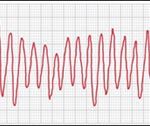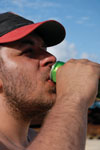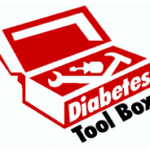 If campaigns to promote more healthful eating are ineffective, how else might society address the obesity epidemic?
If campaigns to promote more healthful eating are ineffective, how else might society address the obesity epidemic?
MailOnline reports that deportation is an option. Continue reading Too fat to live in New Zealand
 If campaigns to promote more healthful eating are ineffective, how else might society address the obesity epidemic?
If campaigns to promote more healthful eating are ineffective, how else might society address the obesity epidemic?
MailOnline reports that deportation is an option. Continue reading Too fat to live in New Zealand
 “Long John Silver’s Big Catch meal deserves to be buried 20,000 leagues under the sea,” said Michael F. Jacobson of the Center for Science in the Public Interest (CSPI). Continue reading The last holdout for trans fat in fast food?
“Long John Silver’s Big Catch meal deserves to be buried 20,000 leagues under the sea,” said Michael F. Jacobson of the Center for Science in the Public Interest (CSPI). Continue reading The last holdout for trans fat in fast food?
 During the annual meeting of the Heart Failure Association of the European Society of Cardiology, in Lisbon, Portugal, researchers at Copenhagen University Hospital, in Denmark, reported for the first time that the dietary supplement coenzyme Q10 (CoQ10) cut in half the death rate of patients suffering from advanced heart failure. Continue reading CoQ10 improves survival in chronic heart failure
During the annual meeting of the Heart Failure Association of the European Society of Cardiology, in Lisbon, Portugal, researchers at Copenhagen University Hospital, in Denmark, reported for the first time that the dietary supplement coenzyme Q10 (CoQ10) cut in half the death rate of patients suffering from advanced heart failure. Continue reading CoQ10 improves survival in chronic heart failure
 The NIH Committee on the Consequences of Sodium Reduction… reports it might be time to entertain second thoughts on the importance of salt restriction.
The NIH Committee on the Consequences of Sodium Reduction… reports it might be time to entertain second thoughts on the importance of salt restriction.
It was just a matter of time. Continue reading Benefits of reducing salt intake: Reality sets in
 Cesium (or ceasium) chloride is promoted as a CAM cancer treatment based on the hypothesis referred to as “high pH cancer therapy.”
Cesium (or ceasium) chloride is promoted as a CAM cancer treatment based on the hypothesis referred to as “high pH cancer therapy.”
Researchers from Surrey Memorial Hospital, in British Columbia, reviewed the risk of developing a heart arrhythmia called torsades de pointes and cardiac arrest in people using this chemical as CAM treatment. Continue reading Dangerous heart rhythm disturbance caused by cesium
![]() During EPI/NPAM 2013 — Epidemiology and Prevention/Nutrition, Physical Activity and Metabolism 2013 Scientific Sessions — researchers from Harvard School of Public Health, in Boston, reported that drinking large amounts of sugary beverages was associated with an increase in body-mass index (BMI), which in turn was linked with BMI-related deaths from diabetes, cardiovascular disease, and cancer. Continue reading Risk of death due to sugar-sweetened drinks
During EPI/NPAM 2013 — Epidemiology and Prevention/Nutrition, Physical Activity and Metabolism 2013 Scientific Sessions — researchers from Harvard School of Public Health, in Boston, reported that drinking large amounts of sugary beverages was associated with an increase in body-mass index (BMI), which in turn was linked with BMI-related deaths from diabetes, cardiovascular disease, and cancer. Continue reading Risk of death due to sugar-sweetened drinks
 Few studies have examined differences in ischemic heart disease risk between vegetarians and nonvegetarians.
Few studies have examined differences in ischemic heart disease risk between vegetarians and nonvegetarians.
Now, researchers at the University of Oxford, in the UK fill that void. Continue reading Clear benefits of a vegetarian diet on the risk of heart disease
 In 2009, the Substance Abuse and Mental Health Services Administration reported that more than 13,000 emergency room visits were associated with energy drinks.
In 2009, the Substance Abuse and Mental Health Services Administration reported that more than 13,000 emergency room visits were associated with energy drinks.
Now, The New York Times tells us, FDA reports the caffeine drink, 5-hour Energy, may have been involved in 13 deaths over the past four years.
There’s no absolute proof that these drinks were the sole cause of these events. And the makers of 5-Hour Energy and Monster Energy insist their products are safe and unrelated to the problems reported to the FDA.
Regardless. Continue reading Risks due to energy drinks
 Energy drinks are consumed by 30% to 50% of adolescents and young adults. The manufacturers claim they are safe.
Energy drinks are consumed by 30% to 50% of adolescents and young adults. The manufacturers claim they are safe.
Researchers at the University of Miami, in Florida reviewed the evidence and came to a different conclusion. Continue reading Safety of energy drinks
 Khat (Catha edulis) is a shrub from northeast Africa and the Arabian Peninsula, with stimulant effects similar to but less intense than cocaine or methamphetamine.
Khat (Catha edulis) is a shrub from northeast Africa and the Arabian Peninsula, with stimulant effects similar to but less intense than cocaine or methamphetamine.
Researchers at Hamad General Hospital, in Doha, Qatar, studied its effects in patients with acute coronary syndrome (ACS) — a condition associated with insufficient blood flow to the heart.
As you read this summary it might be useful to consider that addicts can detox from drugs in New York.
Continue reading Risks of chewing khat in people with acute coronary syndrome
 Research shows that coffee and caffeine are associated with increased blood pressure (acutely), (nor)epinephrine levels, arterial stiffness and impaired vasodilation.
Research shows that coffee and caffeine are associated with increased blood pressure (acutely), (nor)epinephrine levels, arterial stiffness and impaired vasodilation.
But according to researchers in the US, drinking just the right amount may lower your risk for heart failure. Continue reading Heart failure and the benefits of drinking coffee
Vitamin D appears to affect many health outcomes.
An international group of researchers reviewed the literature to see if there’s an effect on mortality. Continue reading Benefit of vitamin D and calcium in the elderly
![]() FDA is warning consumers that Reumofan Plus, marketed as a natural dietary supplement for pain relief and other serious conditions, contains several active pharmaceutical ingredients not listed on the label that could be harmful.
FDA is warning consumers that Reumofan Plus, marketed as a natural dietary supplement for pain relief and other serious conditions, contains several active pharmaceutical ingredients not listed on the label that could be harmful.
Here’s what we know. Continue reading Consumer alert: Reumofan Plus
 This has nothing to do with taking a bath.
This has nothing to do with taking a bath.
Researchers at the University of Florida College of Medicine, in Gainesville, tell us, “The abuse of psychoactive “bath salts” (PABS) has become commonplace, and patients with PABS overdoses are presenting to emergency departments with increasing frequency. Continue reading Bath salts becoming illegal
 Psychosocial factors are associated with increased risk of cardiovascular disease morbidity and mortality, but the effects of psychosocial factor treatment on heart disease are uncertain.
Psychosocial factors are associated with increased risk of cardiovascular disease morbidity and mortality, but the effects of psychosocial factor treatment on heart disease are uncertain.
Researchers at Uppsala University Hospital, in Sweden, studied the effects of cognitive behavioral therapy (CBT) on the recurrence of cardiovascular disease. Continue reading CBT and the risk for heart disease
 A higher intake of fruits and vegetables is associated with a lower risk of ischemic heart disease (reduced blood supply to the heart muscle).
A higher intake of fruits and vegetables is associated with a lower risk of ischemic heart disease (reduced blood supply to the heart muscle).
Researchers at the University of Oxford, in the UK, assessed the relation between fruit and vegetable intake and risk of death from ischemic heart disease in the European Prospective Investigation into Cancer and Nutrition (EPIC)-Heart study. Continue reading Fruit, veggies, and the risk of death from ischemic heart disease
 Researchers at the Centers for Disease Control and Prevention examined the relationship between 4 low-risk behaviors and mortality among a group of people in the United States. Continue reading Effect of low-risk lifestyle behaviors on the risk of dying
Researchers at the Centers for Disease Control and Prevention examined the relationship between 4 low-risk behaviors and mortality among a group of people in the United States. Continue reading Effect of low-risk lifestyle behaviors on the risk of dying
 Dietary advice is the basis of treatment of diabetes, but there’s uncertainty about the effects of polyunsaturated fatty acids.
Dietary advice is the basis of treatment of diabetes, but there’s uncertainty about the effects of polyunsaturated fatty acids.
Researchers at Uppsala University, in Sweden, compared the effects of diets rich in omega-3 or omega-6 fatty acids on glucose and lipoprotein metabolism in these patients. Continue reading Benefits in type 2 diabetes of eating fatty fish
 Researchers in Spain assessed the association between eating fried foods and the risk of coronary heart disease. Continue reading Reassessing fried foods and heart disease risk
Researchers in Spain assessed the association between eating fried foods and the risk of coronary heart disease. Continue reading Reassessing fried foods and heart disease risk
 Acute coronary syndrome refers to any condition brought on by sudden, reduced blood flow to the heart causing chest pain during a heart attack or chest pain at rest or doing light physical activity (unstable angina).
Acute coronary syndrome refers to any condition brought on by sudden, reduced blood flow to the heart causing chest pain during a heart attack or chest pain at rest or doing light physical activity (unstable angina).
Researchers at Shanghai Jiaotong University, School of Medicine, in China, tested berberine’s effects on ACS patients following percutaneous coronary intervention (PCI) (aka angioplasty or stent placement). Continue reading Berberine to treat acute coronary syndrome